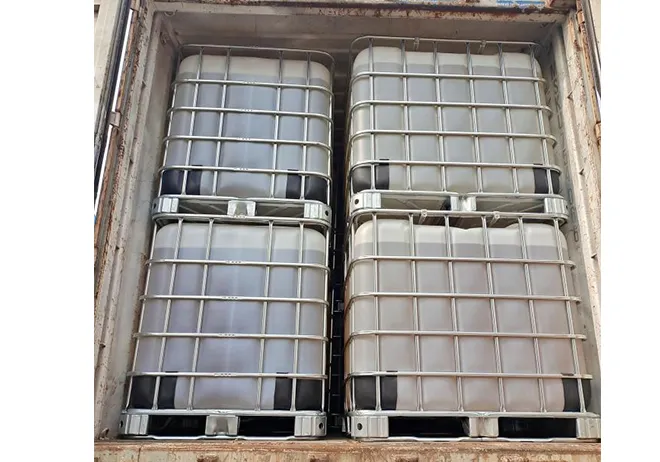
Understanding the Role of Humectants in Food Preservation and Quality Enhancement
The Role of Humectants in Food Additives
Humectants are substances that help retain moisture in food products, making them essential in the food industry. They are widely used as food additives to enhance the texture, flavor, and shelf life of a variety of food items. Understanding how humectants work and their various applications can illuminate their importance in our daily diets.
What are Humectants?
Humectants are hygroscopic substances, meaning they have the ability to absorb moisture from the environment or retain moisture within the food. Common humectants include glycerol, sorbitol, and propylene glycol, among others. These compounds can prevent the drying out of food, inhibit the growth of mold and yeast, and improve the consistency and palatability of products.
The chemical structure of humectants allows them to form hydrogen bonds with water molecules. This binding not only keeps the food moist but also influences how other ingredients interact with water, thus affecting the overall quality of the food. By retaining moisture, humectants can prolong the freshness and texture of food items, making them a staple in mass-produced products.
Applications in Food Products
Humectants are utilized across various food categories, from baked goods to candies, dairy products, and meat. In baking, for instance, they help maintain a soft texture in cakes and breads by retaining moisture, leading to products that remain fresh for a longer period. In confectionery, humectants prevent sugar from crystallizing and contribute to a smooth, chewy texture in candies.
In the dairy industry, humectants can improve the creaminess of yogurt and sauces while preventing them from drying out. Similarly, in meat products, humectants can enhance moisture retention during processing and storage, thus improving the overall quality and taste of products like sausages or hams.
humectant food additive

Health and Safety Considerations
While humectants are generally considered safe for consumption, it is important to monitor their usage levels, as excessive amounts could lead to digestive issues or allergic reactions in some individuals. Regulatory agencies like the FDA and EFSA have set guidelines on the acceptable daily intake of various humectants, ensuring that they are used within safe limits in food production.
Consumers should also be aware of the potential health impacts of certain humectants. For example, while sugar alcohols like sorbitol or glycerol can be beneficial as low-calorie sweeteners, they may cause gastrointestinal discomfort in large quantities. Therefore, it’s crucial for food manufacturers to label products accurately, allowing consumers to make informed dietary choices.
The Future of Humectants in Food
The demand for healthier, longer-lasting food options continues to rise, pushing the boundaries of food science and technology. With ongoing research, humectants are being explored not just for their moisture-retaining capabilities but also for their potential health benefits. Innovations in natural humectants derived from plant sources may provide alternatives to synthetic additives, catering to the growing clean-label movement in the food industry.
Sustainability is also a key concern in food production. As companies strive to reduce waste and enhance the efficiency of their products, the development of biodegradable and environmentally friendly humectants could emerge as a priority, aligning with global ecological goals.
Conclusion
Humectants are invaluable tools in the food industry, playing a crucial role in maintaining moisture and enhancing the overall quality of food products. As consumer preferences evolve towards healthier and sustainable options, the future of humectants in food additives seems promising. By understanding the benefits and limitations of these substances, both consumers and manufacturers can contribute to a more informed and health-conscious food landscape.
-
Regulatory Compliance for Global Mining Chemicals UseNewsAug.12,2025
-
Mechanism of 1 2 3 Benzotriazole Corrosion InhibitionNewsAug.12,2025
-
Catalyst Innovations for Ammonia Fertilizer SynthesisNewsAug.12,2025
-
Biological Pathways for Formic Acid MetabolismNewsAug.12,2025
-
Ammonium Bicarbonate Decomposition Temperature AnalysisNewsAug.12,2025
-
Aluminum Hydroxide in Vaccine AdjuvantsNewsAug.12,2025
-
Water Treatment Chemicals for Industrial ProcessesNewsAug.07,2025
Hebei Tenger Chemical Technology Co., Ltd. focuses on the chemical industry and is committed to the export service of chemical raw materials.
-

view more DiethanolisopropanolamineIn the ever-growing field of chemical solutions, diethanolisopropanolamine (DEIPA) stands out as a versatile and important compound. Due to its unique chemical structure and properties, DEIPA is of interest to various industries including construction, personal care, and agriculture. -

view more TriisopropanolamineTriisopropanolamine (TIPA) alkanol amine substance, is a kind of alcohol amine compound with amino and alcohol hydroxyl, and because of its molecules contains both amino and hydroxyl. -

view more Tetramethyl Thiuram DisulfideTetramethyl thiuram disulfide, also known as TMTD, is a white to light-yellow powder with a distinct sulfur-like odor. It is soluble in organic solvents such as benzene, acetone, and ethyl acetate, making it highly versatile for use in different formulations. TMTD is known for its excellent vulcanization acceleration properties, which makes it a key ingredient in the production of rubber products. Additionally, it acts as an effective fungicide and bactericide, making it valuable in agricultural applications. Its high purity and stability ensure consistent performance, making it a preferred choice for manufacturers across various industries.











